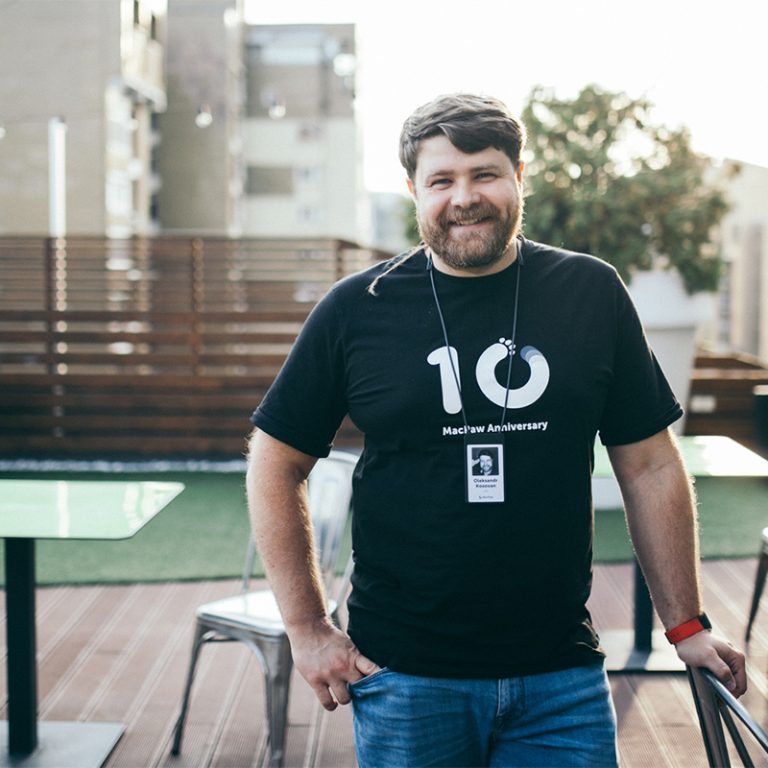In 2008, Oleksandr Kosovan, a student at one of Kyiv’s universities, founded MacPaw, a company which has at its core two key tenets: a passion for discovery and a love for Apple products. Now it operates internationally, and it is listed among the thirty best Ukrainian startups. It has more than 30 million users worldwide.
The information technology (IT) industry in Ukraine was formed in the early 1990s. Back then, Ukrainian professionals from the first IT companies, including ELEKS, Infopulse, SoftServe, and Miratech, quickly conquered the Western market thanks to the good ratio of skills to salary expectations. In the following decades, the Ukrainian IT industry gradually developed and filled with specialists. The international market was getting to know the Ukrainian one. IT specialists gained favour abroad and introduced foreigners to Ukraine. For example, the American IT giant EPAM opened its office in Kyiv in 2005.
The rapid development of the IT industry in Ukraine began in 2014 when the events related to the Revolution of Dignity (2013-2014) brought international attention to Ukraine. According to the Ukrainian IT news site DOU, from 2011 to 2019, the number of IT employees increased fivefold, or from 38 thousand to almost 192 thousand. More than five thousand new vacancies appear every month.
The first decade of the 2000s was the time when MacPaw, one of the most powerful exporters of IT products in Ukraine, was founded. MacPaw specialises in the development and distribution of software for macOS, iOS, Android, and Windows. Nowadays, the company’s portfolio includes more than ten products, which have over 30 million users worldwide. These include CleanMyMac X, Setapp, ClearVPN, Gemini Photos and others. You may not have heard of MacPaw, but if you have Apple devices, you’ve probably used MacPaw products.

The Birth of MacPaw
Oleksandr Kosovan has been interested in various gadgets since childhood. His father worked as an engineer during Soviet times, so the future entrepreneur had access to the early computer models and repaired them. Even back then, he knew he wanted to connect his future with technology.
Oleksandr Kosovan got his first MacBook in his last year at the Faculty of Computer sciences of the Ihor Sikorsky Kyiv Polytechnic Institute. At that time, Oleksandr combined his studies with work as a system administrator. To better understand his new device, he began exploring the computer’s operating system. He says, he previously worked with Hackintosh, an unofficial Apple system that users can install on third-party computers. Oleksandr literally fell in love when he picked up the original MacBook:
“I became an ardent fan of this company and told all my friends about it. After a while, they all switched to one Apple product or another. I felt as if it was my mission to help people to use something better than before: I really didn’t like Windows with its problems and viruses.”

As a system administrator, Oleksandr worked with the operating system from the inside: for example, he developed drivers.
Even then, he wanted to develop an optimization program that would free space on his MacBook. This is how the first programme of MacPaw, CleanMyMac was developed in 2008.
“I spent a year writing the code for the product, and another 3-4 months creating a website, which was followed by a beta release. And the most interesting thing is, that when the product appeared on the market but was not yet for sale, users began to ask me how they could buy it. And it was such an interesting experience: I started to realize that I created something useful and someone might really need it.”
Beta release
Users receive access to the almost-ready product for testing purposes.The sales of the programme CleanMyMac started in January 2009 and brought in $4,000 within the first month. MacPaw developed like a typical Silicon Valley scenario. It was founded by friends in a small room, and later, when the sales started, the startup began to bring them income.
To promote the program, the developers worked on its distribution. In particular, they began to work with all platforms available back then that recommended useful software for Macintosh computers. The company also targeted Google advertising for potential buyers from different countries and thoroughly analysed user feedback.
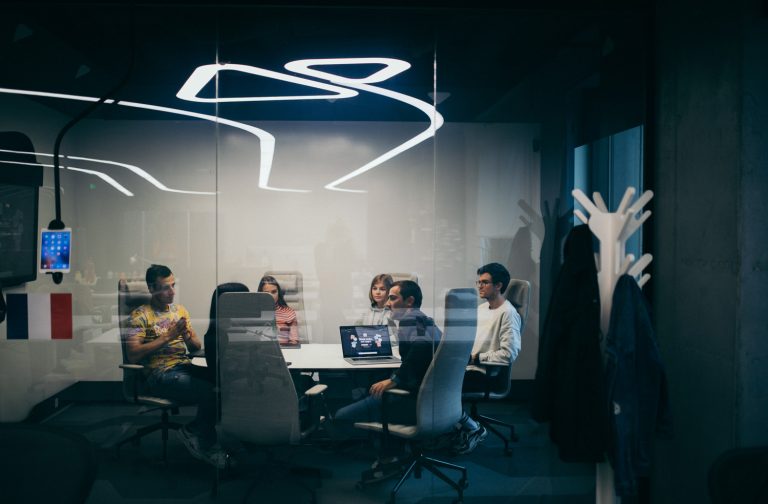
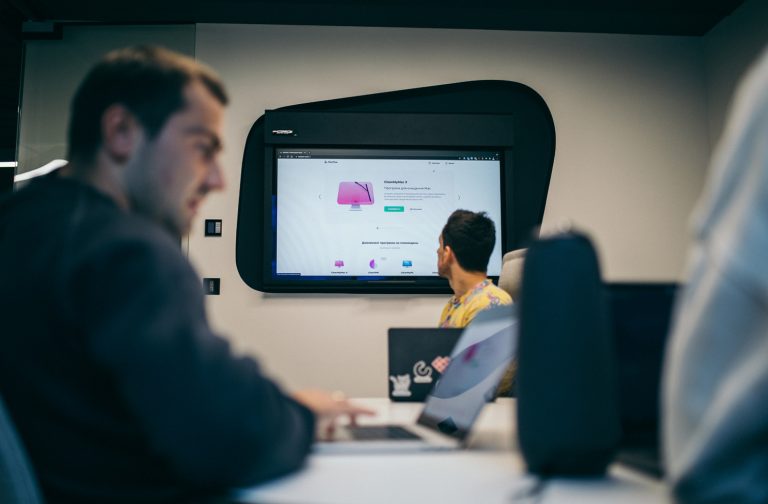
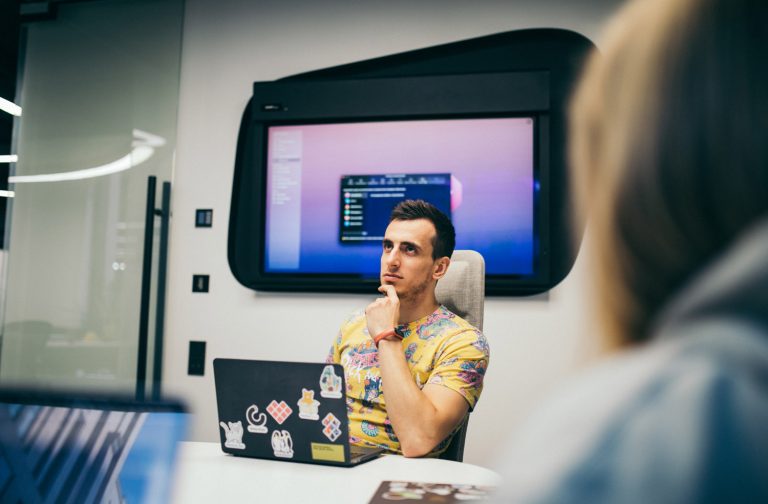
slideshow
Oleksandr says that most of the turning points for the company were related to the team and its growth, including teambuilding and employee values. It is important how a person fits in with us as far as spirit, values, and how they see different things. This is the main filter. Anyone’s professional skills can be trained, taught, adapted, but soft skills barely change during one’s life.
The founder says the greatest strength of the company is the people. He says the company happened and succeeded due to the team’s passion and desire to create something new. Oleksandr himself professes this attitude towards work.
“I founded the company to create cool products and self-realize as an engineer, programmer, and inventor. It turned out, people needed it and were willing to pay for it. If you create a good, high-quality product that solves users’ problems, everything else will follow.”

Play by the rules
The team experienced setbacks along the way too, for example, in 2011, with the launch of the Mac App Store for MacBook laptops, Oleksandr and colleagues began developing a product Ensoul that could use the official distribution platform and comply with all Apple rules but after a year and a half of work on the project, it was closed.
When we launched it, we realised that it didn’t work, that people didn’t understand that they had a problem this product was supposed to solve. And, accordingly, the demand was low and after a while we needed to close it. We now invest much more time in market analysis, analysis of the demand before leaving everything and jumping into another project.

Oleksandr says that in September 2016, during the Apple Worldwide Developers Conference, Apple presented new features of the operating system, including a programme to optimise the performance. It could push CleanMyMac out of the market.
“At first it was a shock for us: we thought that users would use only the official one. But in fact, Apple covered only basic user needs and, maybe, even highlighted the problem. The products focusing on a quality solution for this problem can handle it much better than the tools built into the system.”
In 2018, CleanMyMac became available for subscription. Previously, it was only possible to purchase it ‘forever’. This was when it became reasonable to add it to the Mac App Store. However, the product needed to comply with Apple requirements and pass their check.
A year later, MacPaw started negotiations with Apple about distribution of CleanMyMac through the App Store. Since this platform has significant limitations for the apps that work with the system files, MacPaw developed an updated version of the product – CleanMyMac X. This process took almost a year. Finally, in April, 2020, CleanMyMacX appeared in the App Store.

Product
The specifics of working with Apple products are that companies have to adapt to innovations and adaptations of the Apple system. Despite the constant need to follow the rules dictated by Apple, MacPaw continues to release new products. Nowadays, the company has more than ten active projects in its portfolio.
Some software, such as CleanMyMac and The Unarchiver, are giants with a multi-million user audience. CleanMyMac remains the company’s flagship product, with more than 25 million downloads. It has 13 language versions and is sold in two variations: an annual subscription for $40 or a $90 lifetime subscription.

The company’s portfolio also has a platform called Setapp for application distribution. Setapp users have access to 230+ programmes for Mac, iPhone and iPad from the world’s leading developers.
One focus of MacPaw is to make technology accessible to people. The team constantly works on new products and possibilities for the users. For example, in 2020, a new tool — ClearVPN — was launched.
VPN
Virtual private network — a service for confidentiality protection on networks and the internet.“This app allows users to access content safely from any continent. We plan to develop our product line with new cybersecurity solutions.”
Exports and the state
MacPaw, like the majority of Ukrainian IT companies, was founded to work as an export. MacPaw’s customer is primarily defined by its ownership of a particular device rather than by geography. The company focuses on Apple users that are interested in cleaning and optimising their devices.
“The IT industry is probably one of those industries that can enter all markets of the world simultaneously, almost without restrictions. While creating a product here in Ukraine, we can sell it to people living in Bangladesh, New York, or London.”
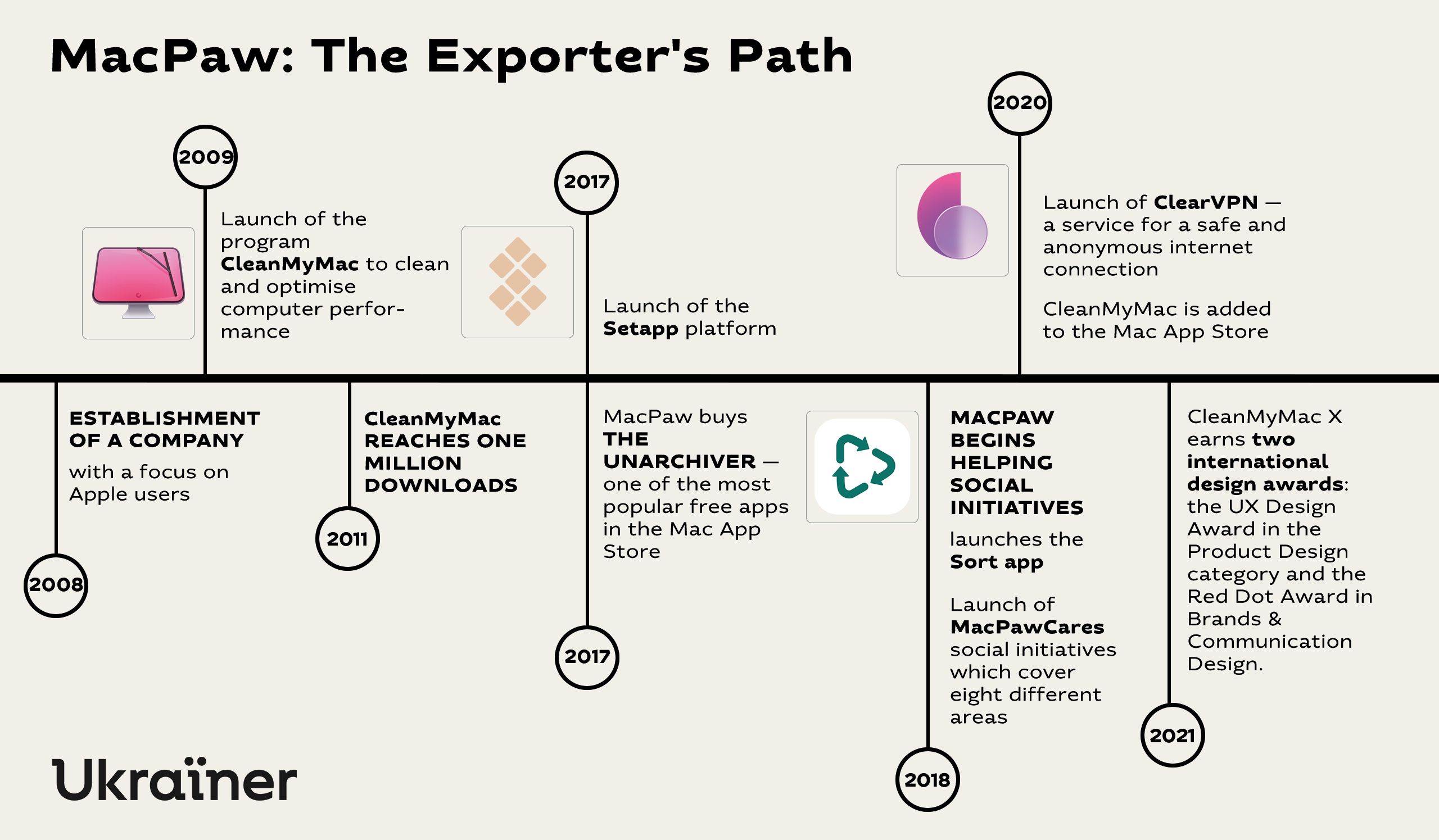
MacPaw promotes its products in carefully selected countries after thoroughly analysing their markets. The company differentiates between the American, European and Asian markets because the location impacts mentality, geopolitics and the IT ecosystems prevailing in that particular region. This also defines the strategies for marketing and communications in each country.
To expand the geography of sales, it is not enough to localize the product. Before entering a new market, MacPaw studies its volume, interest in the product, willingness to pay, competitors, and their pricing. The company also speaks to the local users and professionals from the industry. The head of sales in MacPaw, Iryna Behma, says:
Localisation
Adjusting the software to the laws and standards of the country that is being considered a market of interest. Localisation also includes translation and adaptation of the interface elements, supplementary files, and documents.“The company needs to know its target group, what bothers them, and what particular value its product can deliver to them. This helps a company avoid expensive development and helps reveal whether its product has characteristics necessary for entering a new market.”
Oleksandr Kosovan says, nowadays, there are numerous strategies to enter foreign markets, and many possibilities for partnerships with international corporations, such as Facebook, Google, and Apple:
“If you develop a software-based product, you have access to an unlimited number of users instantly: through the App Store or some other way. You can launch your product globally and this, in my opinion, is a very cool opportunity, which didn’t exist before.”
Oleksandr Kosovan recalls that before 2014, the world knew very little about the technological companies from Ukraine. However, hacker activities and connections with Russia were often in the media. This is why, years ago, not many people wanted to do business with Ukrainian companies.
The founder of MacPaw says that perception of Ukraine as a truly independent state from Russia began only after the Revolution of Dignity; this is true also for the IT industry. Such a shift in perception helped also to increase trust in Ukrainian products and developers.
“Until 2014, there was a lot of information about hackers, groups carrying out illegal activities on the internet. There were many connections with Russia, and this left a mark on the minds of users: ‘Oh, you are from Ukraine. You are probably connected with the Russian secret services.’ That’s why many people often did not want to deal with companies from Ukraine.”
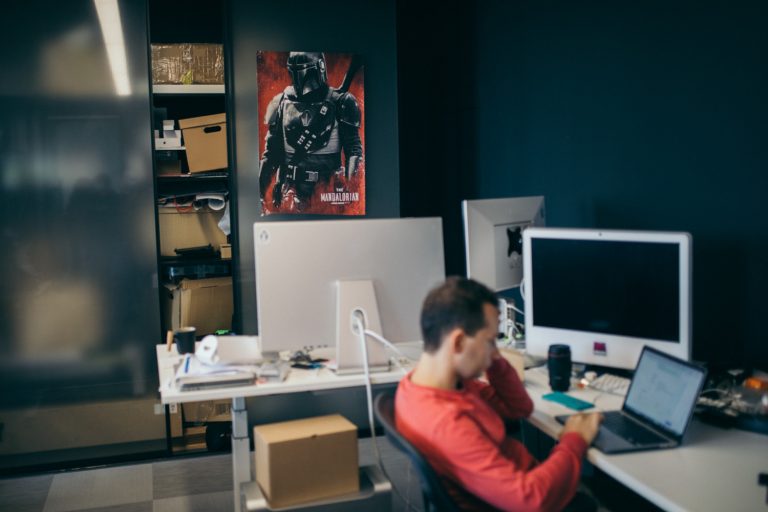

slideshow
Oleksandr adds that only after Ukraine separated from Russia in the minds of foreign consumers, were they no longer afraid to try different products from Ukraine.
“We began to say publicly that we are a company from Ukraine; we are proud to be here and create products here. There were more and more companies doing such, and such revelations highlighted the already popular projects that no one associated with Ukraine. This has changed the perception of Ukraine as a country that can truly create competitive global products.”
In 2018, the company began entering the Asian market. At first the company worked with local distributors, using their sales channels. In 2019, the company site was localised and the company started an advertising campaign for Japan. Then, in 2020, MacPAw did the same for China. For these two countries, the company has developed strategies, pricing policies, communication channels and even a local legal entity in China. Kateryna Kachan, marketing manager for the Asian region, says:
“The Japanese market is more understandable. Of course, there are different mentalities, but Japan has the same marketing channels as the western market: Google, Facebook, Twitter. In China, the market is larger but more difficult to export to. There are no western marketing channels, but there are local platforms: WeChat, Baidu, QQ.”
The mentalities of these two countries also affect MacPaw’s decision to sell offline:
“In Japan, CleanMyMac is sold in boxes. This is due to the fact that the Japanese market is still very traditional. Even today, there are five- and seven-story electronics stores. We are also going offline for the Chinese market. In China, if something breaks, it is taken to a workshop. So we see the value in physical presence on the shelves of stores and workshops where users go when something happens to technological equipment, such as a Mac.”
Oleksandr Kosovan says, there is an IT boom in Ukraine now. The demand for professionals is growing. New orders are coming in and, accordingly, the number of vacancies is increasing. He says that the levels of expertise and remuneration of Ukrainian and European professionals are the same, but it’s more profitable to work in Ukraine:
“Life in Ukraine is much cheaper. That is, people who receive the same salary as in Europe can afford many more items, experiences, and opportunities here.”
In his opinion, in Ukraine there are currently many people who share a similar spirit, values, and vision. In most cases, thanks to such cultural kinship, the company actively and rapidly develops and conquers different markets.
Oleksandr believes that the IT industry in Ukraine was facilitated by the 1990s and 2000s. Then, people could get any pirated software for cheap. They could learn almost for free and improve their skills. Also, many professionals received powerful technical skills during their university studies:
Piracy or counterfeiting
Intentional illegal use of someone else's intellectual property.“I could use any software from any developer, just by going to Petrivka (the largest bookstore in Kyiv, which also sells software — both licensed and illegal — ed.), choosing a CD and getting some experience. I think this formed the backbone of the future IT generation. For now, the situation has changed a lot, but IT as an industry is quite accessible.”

MacPaw’s founder believes that limitations are in peoples’ heads:
“There are some things that can help. For example, knowledge of English. Without English it would be very difficult to start an international company. But this is not really a problem now. Many tools are available now that help you communicate with users, but you will lose time and some opportunities if you don’t have knowledge of English.”
The power of space
One of MacPaw’s values is taking care of its team. In addition to the usual package of sick leave and vacations, team members can get a day off to work on their own projects or for training. If someone experiences burnout, they can take a leave to recover. After five years of work, the company provides a paid leave of up to five weeks.
To create a comfortable working environment, MacPaw optimises its office space and adapts it to new needs.
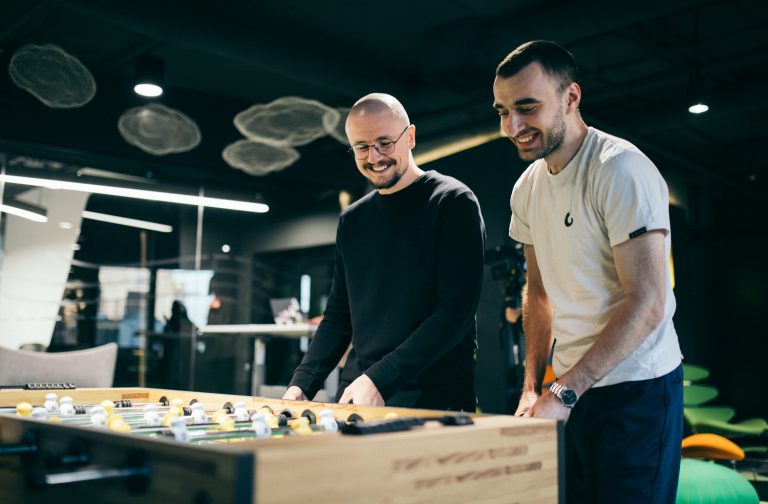

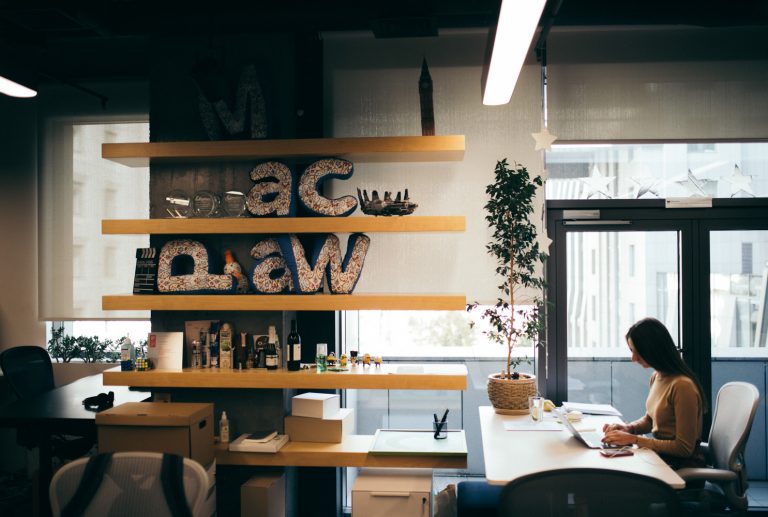
slideshow
Oleksandr says that large companies like Google and Facebook don’t have very comfortable working conditions because people have to work in large noisy rooms. That’s why one of the main benefits of the new MacPaw office is sound insulation. Anyone can choose whether they want to socialise with colleagues or whether they want to work alone in quiet:
“When designing our office, we even selected some materials according to their degree of noise absorption. We have dynamic lighting, which can change the temperature (and intensity) depending on the light outside. It adapts, and then it is more comfortable for the eyes.”
The office has an exposition of the retro Apple devices, gym, recording studio, kitchen, garbage sorting station, meditation room, play area, and more. There is even a room for cats — Fixel and Hoover. The first cat was brought from the basement of a car service station, and the second one was brought to the office by one of the team members. Cats make sure that the team is always in a good mood.
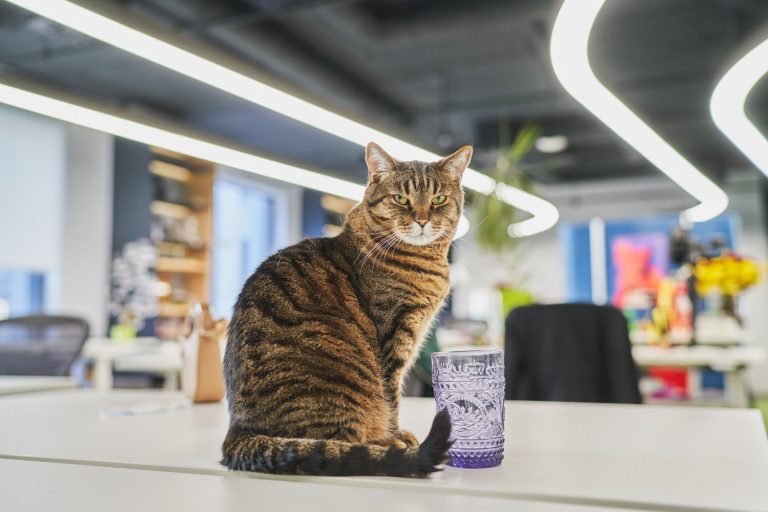
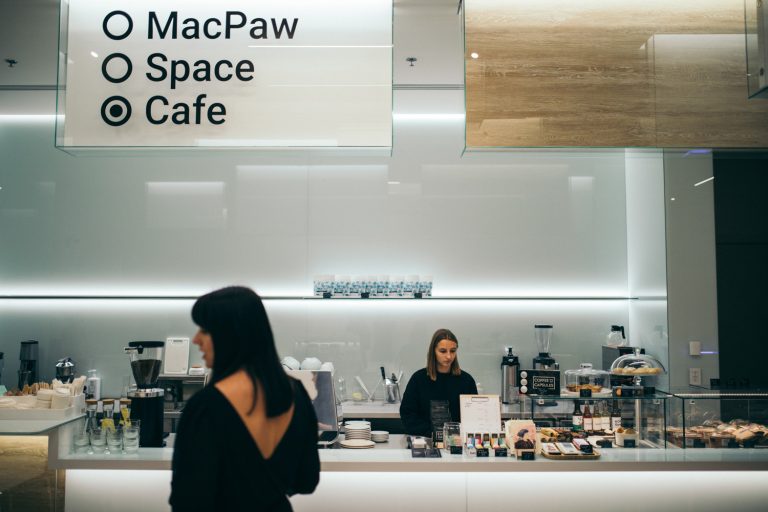
slideshow
Part of the company’s workspace is also dog-friendly (Kormotech, an ambassador of animal-friendly offices in Ukraine, noted that MacPaw has created proper conditions for pets), and there is a room where cats and dogs are not allowed. This room is designated for people with allergies and those who are less excited about interactions with animals.
In 2021, the company announced the opening of a new creative space – MacPaw Space. There are event venues and a café where one can enjoy coffee and desserts. There is also the Apple Heritage Museum that will introduce visitors to Apple’s history and demonstrate the evolution of technology. The main idea of the MacPaw Space is to be the birthplace of change. Despite the fact that the official opening of the MacPaw Space and the Museum is still ahead, in 2021 several dozen events were hosted here.
To celebrate the company’s tenth anniversary, the team launched the programme of corporate social responsibility.
One of the most famous social initiatives of MacPaw is the development of the Sort App. It can be downloaded for free. The app advises individuals both on sorting various types of recyclable waste and on how to find convenient recycling drop-off stations.

Yuliia Petryk, PR manager of MacPaw, says the company approaches the production the same way as the arrangement of the workspace:
“For the product, all elements are important — from design, and audio, to the general perception. Similarly, the office space should be maximally comfortable and aesthetic for those who will be there. Everything here is thought out to the smallest details, so that people who come here feel that they are welcome here, that it is comfortable, convenient and good for productive work.”
Oleksandr adds:
— For me, the office is the space where people probably spend most of their lives. That’s why it should be a place where you would like to come, where you would like to stay, that inspires, and provides a space for development and thinking. And that’s why it’s very important to design the space that will help with these.

